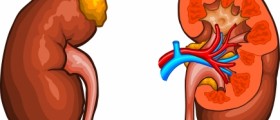
Information on Dehydration
Dehydration is a situation in which the human body experiences excessive loss of water and it can be life threatening in some cases. The body is in constant need for water because it gets lost by means of breathing, sweating and urinating. The quantities of water that a human body requires on a daily basis may differ and they depend on numerous different factors.
Urine color is a good indicator of the satisfaction of the human body’s need for fluids. Water is very important for numerous processes in the body as it degrades the substances, produces the energy and is very essential for the health and functioning of tissues, organs and cells. Water is important for the vitality of numerous different organs in the human body, especially the brain.
Hydration is important for the skin health and it is also very beneficial for the health of all the muscles in the human body.
Side Effects of Dehydration
When the body gets dehydrated there are numerous different medical conditions that may occur as a result of that. The first and the most common side effects of dehydration are a sense of thirst and dry mouth.
The oral mucous membranes and the tongue become dry and sometimes even sticky. Since, all the cells in the human body require water in order to function properly, dehydration may affect all the bodily systems and cause a loss of strength, energy and endurance. Tiredness and fatigue are quite often associated with dehydration. Some severe cases may lead to lethargy, sleepiness and irritation.
Dehydration may also be indicated by the lack of tears and the formation of dark circles under the eyes. Dehydration is also known for triggering hunger because fluids also get to the body by means of certain types of food. Certain instances of dehydration with varying severity may cause headaches. When those occur, a person usually experiences diminished ability to think and memorize things as well.
Moderate cases of dehydration can also be characterized by a decreased output of urine. If a person experiences severe instances of dehydration without any treatment, there is a slight risk of permanent damage to the kidneys.
Certain cases of dehydration may also involve a decreased blood pressure. Those cases are usually accompanied by dizziness and sometimes even fainting. Severe cases of dehydration may also sometimes trigger a medical condition known as tachycardia.
This condition involves a rapid heart rate. Other side effects of dehydration may include fever, mental confusion and unconsciousness.














_f_280x120.jpg)


Your thoughts on this
Loading...